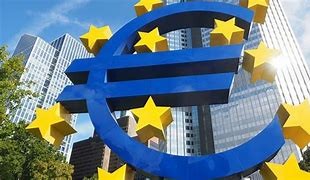Finance Ministry publishes concept for Euro Changeover Bill: What it means for wages, pensions, prices and the exchange rate
The Finance Ministry published a concept for bill on the euro changeover in Bulgaria. The document sets out the main aspects of the changeover: at what exchange rate it will happen, how pensions and salaries will be rounded, how long both currencies can be used, how this will affect businesses. An awareness campaign is also planned to explain the process.
Bulgaria hopes to join the euro zone from the beginning of 2024.
Prices in euros
The conversion of prices and value from leva to euro will be done by applying the full numerical value of the fixed exchange rate, which is set by the BNB and where BGN 1.95583 = EUR 1, rounding up the resulting amount in accordance with the mathematical rounding rules. That means that if the third decimal place is less than five, the second decimal place remains unchanged; and if the third decimal place is equal to or greater than five, the second decimal place will be increased by one. For example, if a commodity costs BGN 20, its price in euro will be 10.23.
Specific cases where the above mathematical rule won't apply are the recalculation of salaries, pensions, social benefits, and the nominal value of financial instruments.
After the changeover, retailers and wholesalers will be required to return change to customers only in euro.
Dual display
Prices in retail outlets will be displayed both in leva and euro. The dual display period will start one month after the decision of the Council of the European Union on Bulgaria's accession to the euro zonea and will last for a year after the official introduction of the euro. The dual display reqiorement will not apply to securities and other financial instruments.
Consumer protection: fair traders and blacklist
The document specifies that the conversion of prices will be free of charge, that the conversion should not put the consumer at a financial disadvantage and that the consumer should be provided with timely, clear and accurate information on the procedure and rules for currency exchange.
Economic operators, including lending institutions, payment institutions, electronic currency institutions and other financial service providers, are not allowed to increase the price of goods or services to consumers upon the introduction of the euro without a good reason.
Also, the euro changeover shall not be a reason for revising the terms of contracts and other legal instruments.
The Consumer Protection Commission will monitor for speculative currency conversion. In order to encourage fair traders, the Economy Ministry, together with the Consumer Protection Commission and representatives of NGOs, will organise a Fair Trader campaign, with a clearly recognizable campaign logo. Those traders/service providers who comply with the rules for accurate conversion of prices, as well as for clear and correct price indication during the dual pricing period, will receive a Fair Trader sticker to inform consumers that they are participating in the campaign. Those who deliberately violate the conversion rules will be sanctioned in accordance with the current legislation, and their names will be included in a blacklist which will be published on the Consumer Protection Commission's website, on the euro website and through other information channels.
Currency exchange
The central bank will exchange BGN banknotes and coins indefinitely after the adoption of the euro. This will be done at a fixed rate and free of charge. Lending institutions as well as post offices (Bulgarian Post EAD) will exchange banknotes and coins free of charge for a period of 6 months. After this period and for up to one year from the introduction of the euro, these institutions will be able to charge exchange fees.
